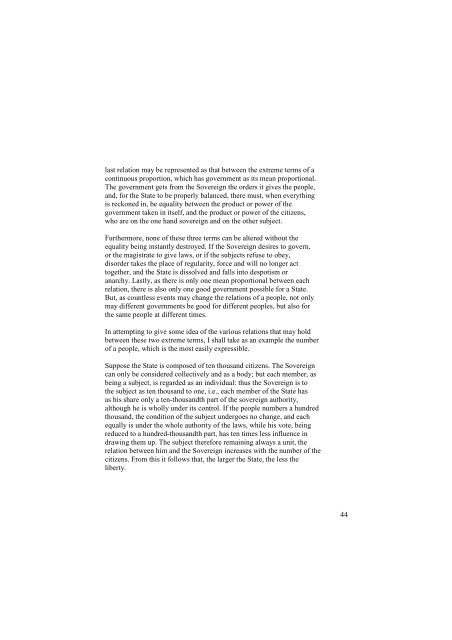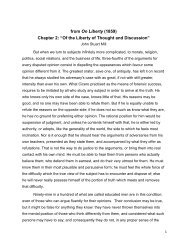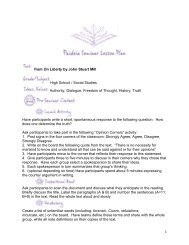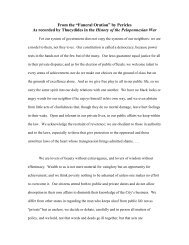Rousseau_contrat-social
Create successful ePaper yourself
Turn your PDF publications into a flip-book with our unique Google optimized e-Paper software.
last relation may be represented as that between the extreme terms of a<br />
continuous proportion, which has government as its mean proportional.<br />
The government gets from the Sovereign the orders it gives the people,<br />
and, for the State to be properly balanced, there must, when everything<br />
is reckoned in, be equality between the product or power of the<br />
government taken in itself, and the product or power of the citizens,<br />
who are on the one hand sovereign and on the other subject.<br />
Furthermore, none of these three terms can be altered without the<br />
equality being instantly destroyed. If the Sovereign desires to govern,<br />
or the magistrate to give laws, or if the subjects refuse to obey,<br />
disorder takes the place of regularity, force and will no longer act<br />
together, and the State is dissolved and falls into despotism or<br />
anarchy. Lastly, as there is only one mean proportional between each<br />
relation, there is also only one good government possible for a State.<br />
But, as countless events may change the relations of a people, not only<br />
may different governments be good for different peoples, but also for<br />
the same people at different times.<br />
In attempting to give some idea of the various relations that may hold<br />
between these two extreme terms, I shall take as an example the number<br />
of a people, which is the most easily expressible.<br />
Suppose the State is composed of ten thousand citizens. The Sovereign<br />
can only be considered collectively and as a body; but each member, as<br />
being a subject, is regarded as an individual: thus the Sovereign is to<br />
the subject as ten thousand to one, i.e., each member of the State has<br />
as his share only a ten-thousandth part of the sovereign authority,<br />
although he is wholly under its control. If the people numbers a hundred<br />
thousand, the condition of the subject undergoes no change, and each<br />
equally is under the whole authority of the laws, while his vote, being<br />
reduced to a hundred-thousandth part, has ten times less influence in<br />
drawing them up. The subject therefore remaining always a unit, the<br />
relation between him and the Sovereign increases with the number of the<br />
citizens. From this it follows that, the larger the State, the less the<br />
liberty.<br />
44











